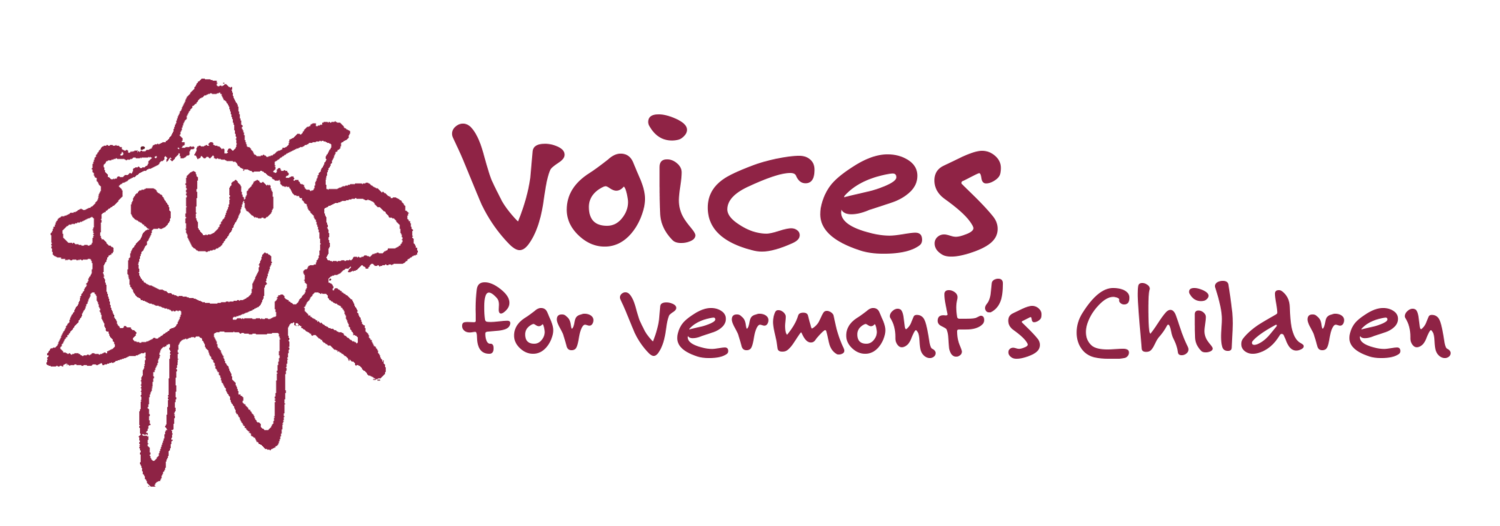The Good, Bad & Missing of the FY21 Restated Budget
Back in February we issued a budget brief highlighting the good, the bad, and missing investments in Governor Scott’s proposed 2021 budget. Fast forward seven months to the middle of a pandemic that has revealed the substantial limitations of our family and economic support systems - the tools families need to raise healthy, thriving kids. Faced with an uncertain economic future, both the governor and the legislature are responding cautiously, while making impactful decisions about how to allocate both standard and coronavirus relief funds on an impossibly short timeline.
To be candid, conducting a detailed analysis of the budget as it rockets through the legislature was an exercise in futility. But as the budget heads back to the House for concurrence or conference committee, we want to highlight a few points that are central to Vermont’s ability to weather the public health and economic storm, and to meeting our obligations to our children and youth.
The Good: We applaud Governor Scott’s decision to issue COVID economic impact payments to mixed-status immigrant families who were excluded from the federal program. The House’s decision to increase the appropriation from $2 million to $5 million based on more accurate projections is also laudable. However, we do not support the House’s funding source: one-time money earmarked for child protection system improvements that has sat unused for several years in spite of the need for system transformation, as indicated by our very high rates of out-of-home placement and other measures. Senator Kitchel, chair of Senate Appropriations, has proposed drawing from reserves to make the equity stimulus payment, a move that maintains the integrity of the child protection funding. We appreciate and support the Senate approach.
The Bad: Reach Up, Vermont’s financial support program for very low-income families, is once again frozen, with benefits locked at a level that meets less than 40% of a subsistence budget. This in spite of the fact that the economic impacts of the pandemic have hit low-income households hardest. This population is also more likely to have missed out on the federal economic stimulus payments issued earlier this summer because their incomes are so low they aren’t required to file income tax returns. (NOTE: there is an online portal for non-filers to use BY OCTOBER 15th to claim their payment). The budget also cuts the Reach Up transportation program, which helps participants overcome one of the top barriers to securing and maintaining employment in our rural state. The transportation program should be restored, and Reach Up should provide 100% of the basic needs budget calculated by DCF, with no grant reduction penalty for disabled adult family members.
What’s Missing: Given the likelihood that a substantial amount of coronavirus relief funds will be unspent as we approach the December spending deadline, the budget must include clear contingency plans to redistribute funds to low-income people. Analysis of the first round of stimulus checks showed that people in economically compromised situations used their stimulus to meet basic needs like rent, food, and distance learning supports. This means money distributed to those in need is quickly injected into the local economy, causing a positive ripple effect. We urge the legislature to prioritize human needs by getting funds out to those hit hardest by the pandemic (such as those who qualify for 3SquaresVT and Reach Up). This approach complies with federal guidance for directing resources to address COVID-19 impacts and infuses the communities most in need with financial support via a naturally equitable distribution.
Also missing - any contemplation of revenue solutions to address the pressure on safety net and other critical programs. Once again, the budget is framed as if our tax structures are fixed in stone, and we are helpless to respond to economic impacts in any way but to cut spending (or use one time funds to hold the line). But we aren’t helpless – the legislature sets tax policy. And at a time when wealth continues to concentrate in the hands of a very few while one in three Vermont children live in low-income families, the failure to modernize our revenue structure is inexcusable.
Too much of the debate around the budget is framed in abstract notions about the economy. The heart of the economy is people. By prioritizing people, particularly children and youth, we will be able to emerge from this pandemic stronger and more prepared for future challenges - as a state, as individuals, and collectively as a community.
